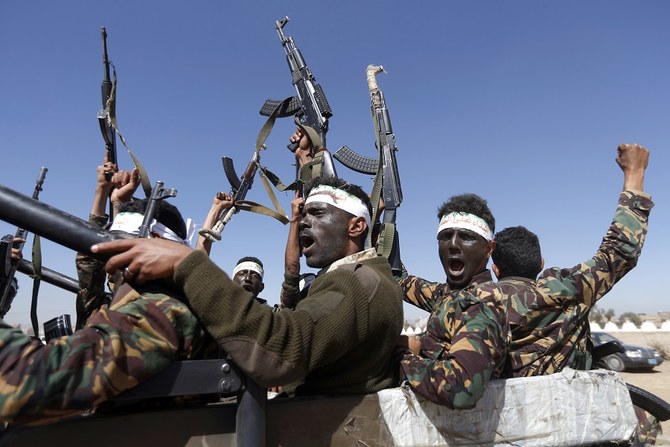Hook urges UN to heed US call for ‘snapback’ of sanctions on Iran
NEW YORK: A day after US Secretary of State Mike Pompeo notified the UN Security Council of its demand that all UN sanctions on Iran be restored, Washington’s special representative for Iran, Brian Hook, urged council members to act on it.
“President Trump restored American sanctions when he left the deal, and now it’s time for the UN to restore its sanctions,” said Hook, referring to the 2015 Joint Comprehensive Plan of Action (JCPOA), also known as the Iran nuclear deal, from which the US withdrew in 2018.
“I have yet to hear anybody make the argument that Iran’s behavior merits sanctions relief. I have yet to hear anybody argue that if the arms embargo expires on the world’s leading sponsor of terrorism and anti-Semitism, that this would somehow advance national security.”
He said the Security Council’s failure on Aug. 14 to vote in favor of a US resolution to indefinitely extend the arms embargo on Iran, which is due to expire in October, left the US with no choice but to trigger a “snapback.”
This is a mechanism within the JCPOA that allows any of the powers that signed the deal — the US, UK, China, Russia, France, Germany and the EU — to submit a complaint to the Security Council about any breach of the deal by Iran. If the concerns are not resolved, then all of the UN sanctions that were in place before the nuclear deal would be automatically restored, including an arms embargo. Iran would also be required to suspend all nuclear-enrichment activities.
While the Trump administration insists that under the Security Council resolution that endorsed the nuclear deal it retains the right to initiate a snapback, even after withdrawing from the agreement, most other council members say it does not because it is no longer a party to the deal.
In response to criticism of Washington’s uncompromising attitude during negotiations with other council members, Hook said the US was the only member to table a proposal for an extension of the arms embargo.
“Since December 2018, the United States has been talking about how we are going to extend (it),” he said. “And we have been very methodical, very patient and very open to any ideas. We were never presented with any compromise, so I think this exists in the mind of the media.”
During last week’s vote, 11 members of the 15-member Security Council abstained from voting on the US resolution to extend the arms embargo. China and Russia opposed it, and only the Dominican Republic supported it.
Asked for his reaction to China’s decision to vote against the resolution, Hook said that Beijing owes an explanation to the nations in the Middle East that asked the Security Council to extend the embargo.
“China should be asked to explain why they rejected the views of the Gulf Cooperation Council,” he said. “The UN is obviously a very important multilateral body but it is not the most relevant.
“The most relevant multilateral body is the GCC, and all six (member) countries came together (and) put aside their differences (to) demand that the Security Council (extend) the arms embargo on Iran. These are the countries that are closest to the danger and the council had a responsibility to respect their views and to extend the arms embargo.”
Hook accused council members of failing in their duty, saying: “If you are on the Security Council, your role is to advance international peace and security — and the council failed on Friday.”
He said the US will take unilateral action to “freeze the assets and restrict the travel of Iranians who worked on the nuclear program and on missiles, and those Iranians who foment terror.”
He added that a snapback would mean: “The UN is going to be restoring sanctions on Iranian banks that finance Iran’s nuclear and missile programs. Restoring sanctions will encourage UN member states to interdict shipments of Iranian weapons (going) into conflict (zones).”
He also reiterated calls from Trump and Pompeo for the international community to abandon the nuclear deal, “which today is more form than substance, and to join us in getting a stronger deal.”
Hook will step down at the end of August and hand over the Iran role to Elliot Abrams, who is currently the US special representative for Venezuela.


British-Australian academic being held in virus-hit Iranian jail ‘without enough food, water’




